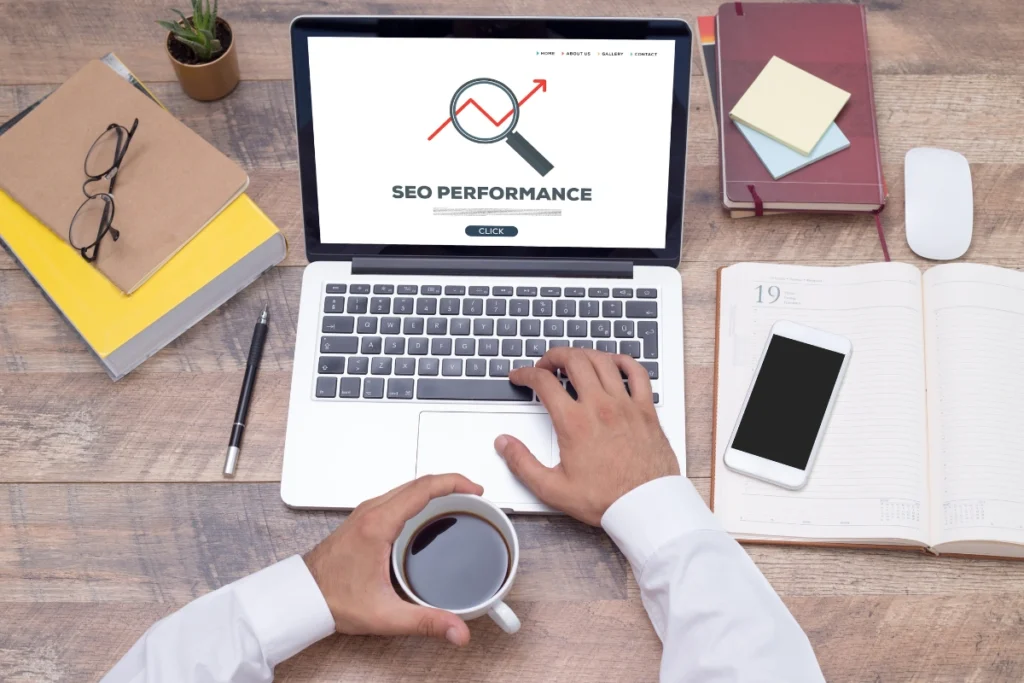
A slow website is one of the biggest conversion killers. If your website doesn’t load within 3 seconds, you could be losing 50% of potential customers. Additionally, Google considers website speed a ranking factor, meaning slow-loading websites perform poorly in search results.
Let’s explore why website speed matters and how you can improve it.
1.How Website Speed Affects SEO
Google rewards fast websites with higher rankings in search results. If your website loads slowly, search engines may rank it lower, leading to:
❌ Less organic traffic
❌ Lower engagement
❌ Higher bounce rates
A fast website improves SEO and helps attract more visitors.
2.The Impact of Speed on User Experience (UX)
Users expect instant page loading. A slow site frustrates visitors and reduces engagement. Studies show that:
🚀 1-second delay in page load time can reduce conversions by 7%
🚀 40% of users leave a site if it takes longer than 3 seconds to load.

Get a Quote
Ready to take your business to the next level? Get a custom quote for a web design solution tailored to meet your needs. Click below to receive a personalized estimate and start your journey toward a powerful online presence.”
3.How to Improve Website Speed
✅ Optimize Images – Use compressed images (JPEG, PNG, or WebP formats) to reduce file size without compromising quality.
✅ Minimize HTTP Requests – Reduce the number of elements (scripts, images, and stylesheets) that need to load.
✅ Enable Browser Caching – Store static files in users’ browsers to speed up returning visits.
✅ Use a Content Delivery Network (CDN) – A CDN stores website content across multiple locations, improving load speed globally.
✅ Reduce Redirects – Too many redirects slow down page speed. Only use them when necessary.
✅ Use Lightweight Themes and Plugins – Avoid bloated website themes and excessive plugins that slow down performance.
✅ Enable Lazy Loading – Load images and videos only when users scroll to them instead of all at once.
4.Testing Your Website Speed
Use these free tools to analyze and improve speed:
- Google PageSpeed Insights (https://pagespeed.web.dev/)
- GTmetrix (https://gtmetrix.com/)
- Pingdom Website Speed Test (https://tools.pingdom.com/)
5. Mobile Speed Optimization
With mobile-first indexing, Google prioritizes mobile-friendly websites. Make sure your site is:
✅ Fully responsive
✅ Optimized for mobile page speed
✅ Using accelerated mobile pages (AMP) if necessary

What Our Clients Say
Don’t just take our word for it—hear directly from the businesses we’ve helped grow. Read testimonials from our satisfied clients and learn why they trust us with their web design needs.
6. Hosting Matters
A fast web host is crucial. Choose a reliable hosting provider with good uptime, fast servers, and solid customer support.
Final Thoughts
Website speed impacts SEO, user experience, and conversions. By optimizing speed, you can boost rankings, improve customer satisfaction, and increase revenue.
Need help optimizing your website’s performance? Get in touch with Mobiz International today!

Our Web Design Packages
Looking for a web design package that suits your budget and business needs? Explore our flexible packages designed to provide the right level of service, whether you’re just starting out or need a comprehensive design overhaul.
